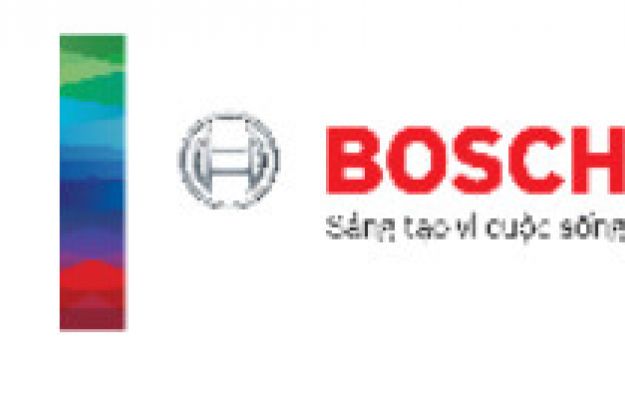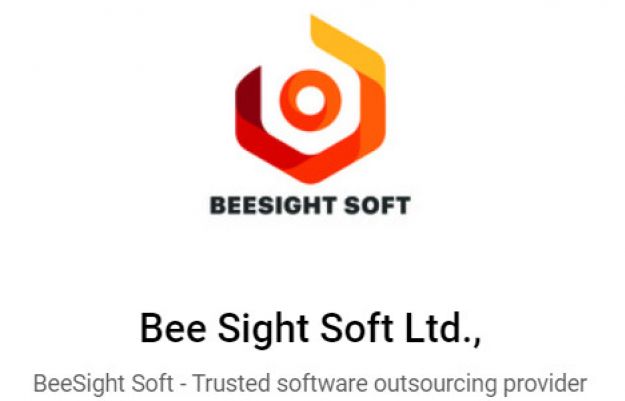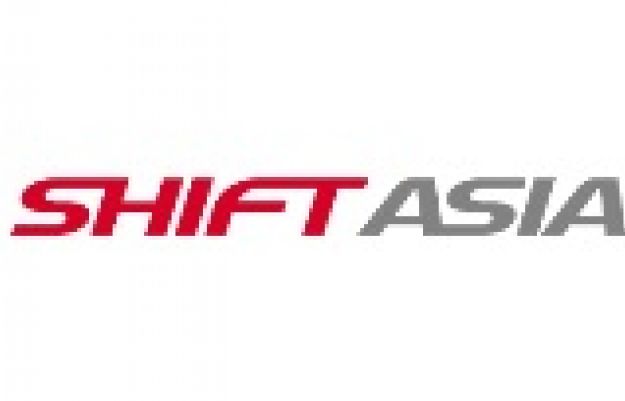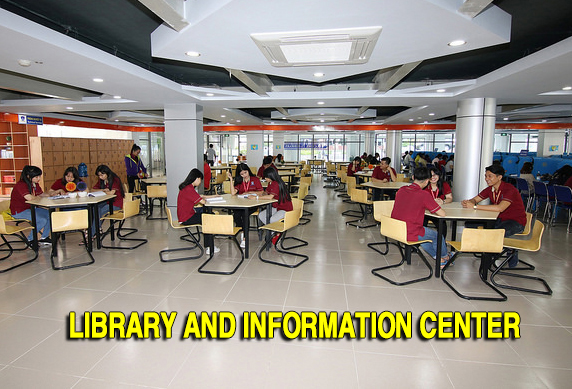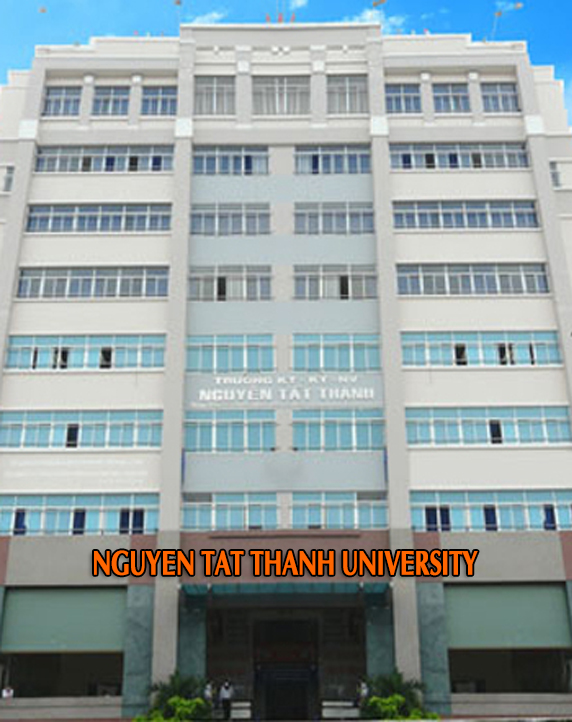Programme Specification
Posted by Admin:
Bachelor in Information Technology
1. Admissions/Management Information Title of the programme Bachelor of Information Technology Vietnamese Qualification Framework (VQF) level Bachelor (Level 6) Awarding institution Teaching institution Nguyen Tat Thanh University Nguyen Tat Thanh University Faculty Faculty of Information Technology Faculty webpage Vietnamese: http://fit.ntt.edu.vn/ English: http://enfit.ntt.edu.vn/ Name of the final award The Degree of Bachelor in Information Technology Programme code 7480201 Admissions criteria There are 4 admissions methods as follows: Method 1: Considering the results of the Vietnam national high school graduation examination. High school candidates must take a national high school graduation examination with a number of compulsory subjects depending on their majors. Because of the academic requirements of the programme and the requirements of the ELOs for the application of social science, mathematics, management, in the context of globalization, the selection of prospective students who achieve an entrance test score in the examination groups are as follows: A00: Math, Physics, and Chemistry A01: Math, Physics, and English D01: Math, Literature, and English D07: Math, Chemistry, and English Method 2: Considering the last year in high school’s grades of the courses in the course group A00, A01, D01 and D07. The minimum threshold to be considered is 6.0 or higher. Method 3: Considering the results of the scholastic ability test administered by the Vietnam National University - Ho Chi Minh City. Method 4: Direct offer to students who won national and international prizes Method 5: NTTU examination Length and status of the programme(s) and mode(s) of study Programme Length (years) Status (full-time/part-time) Start dates/months (if applicable – for programmes Mode Bachelor of Information Technology 04 years 04 years Full-time October Face-to-face, campus-based Language(s) of study Vietnamese Language(s) of assessment Vietnamese 2. Programme accreditation by Professional, Statutory or Regulatory Bodies n/a 3. Programme leader Names of programme leader and key members of staff responsible for designing, maintaining and overseeing the programme. Duong Trong Hai (Programme leader), Nguyen Kim Quoc, Phan Cong Vinh 4. Job profiles Specialized in Software Engineering - Programmers in software enterprises - Software developer - Specialist in Software testing - Specialist in deploying and maintaining software - Specialist in application and management of information systems - Specialists in training and teaching IT at educational institutions and units - Managers of IT services and projects on software engineering Specialized in Computer Networking and Communications - Specialists in analyzing, designing and building network systems - Specialists in information technology system management - Specialists security and information system security - Network maintenance and development specialist - Specialists to build embedded systems - Staff building and operating mobile communication network system - Staff building and operating cloud computing system - Information technology research and teaching staff - Managers of service facilities, IT projects on computer networks and communications 5. Purpose and learning outcomes of the programmes 5a. Educational philosophy and teaching/learning strategy Educational philosophy of NTTU and programme The school declared the philosophy of education as "True Learning - True Practice - True Value - True Future". According to this philosophy, "Learners form competencies through an academic environment that is created and connected with businesses in research, application and community service activities. The experience in the practical environment helps learners discover knowledge, develop skills, orient the future, forming the desire to contribute to the community and build personal prestige with professionalism and professional ethics. The pursuing educational philosophy is constructivism. This philosophy is implemented through the "Learning by design" approach. Students archive experience through design-based learning process (DBL). In the DBL process, under the guidance of student lecturers are experienced with "facing challenges", "defining requirements", "studying ideas", "presenting outline" , "get suggestions", "test" and "give solutions". 5b. Programme objectives PO 1 Succeeding in applying knowledge and creating effective IT solutions for solving professional, ethical, economic, technical, cultural, social and environmental issues virtue. PO 2 Technical leadership or management of multidisciplinary, multicultural and international integration groups. PO 3 Continuous learning and lifelong, always creative and innovative in their contribution to the rapid development of the information technology industry.
5.d. Other features of the programme i) Internationalisation/ globalisation How does the programme promote internationalisation and encourage students to develop cross-cultural capabilities? The program equips students with the capacity to work in the information technology industry to meet the requirements of the domestic and foreign labor market, compatible with international standards ABET. Students receive specialized study with experts from advanced countries (Poland, Thailand, Finland, ...) and key lecturers who graduate from abroad. In addition, students can participate in academic exchanges and cultural exchanges in regional countries. In addition, the school also has international exchange activities to create a multicultural communication environment, helping students easily integrate into the professional environment.. ii) Inclusivity How will good practice in ensuring equality, diversity and inclusion be embedded in the design, content and delivery of the programme? The program provides learning opportunities for all students regardless of ethnicity, gender, age and disability. Elective courses are designed to give learners the opportunity to choose majors and professions according to their interests and abilities. 6. Reference points and programme regulations 6.a. Relevant subject benchmark statements and other external and internal reference points used to provide information on programme outcomes: The program matches the Vietnam national qualification framework (level 6 for university graduates), Specifies the standard of professional titles for information technology officers in Vietnam and standards for public job evaluation Information technology in Japan. 6b. University award regulations - Students accumulate enough credits and 144 credits of the program. In particular, the cumulative grade point average throughout the course from 2.0 / 4.0 and higher, reaching language certificates, certified defense education, physical education and soft skills. - Considering the kind of graduation is determined by the cumulative grade point average of all courses as follows: - Excellent: from 3.60 to 4.0 - Good: from 3.20 to 3.59 - Quite: from 2:50 to 3:19 - Average: from 2.00 to 2.49 - Every year, there are 3 graduation reviews in May, September and December. 7. Programme structure and requirements including levels, courses, credits, etc. 7.a. Course structure SOFTWARE ENGINEERING (SE) No Code Course name Credit SEMESTER 1 Compulsory subjects 10 1 070006 Communication skills 1 2 2 070022 Defense - security education 8 3 070097 Computer architecture 3 4 071793 Introduction to Information Technology 2 5 073483 Programming Basic 3 SEMESTER 2 Compulsory subjects 13 1 001786 Advanced mathematics A1 2 2 070023 Physical education 5 3 070046 Programming techniq 4 4 070418 Database 4 5 073499 General English 1 3 SEMESTER 3 Compulsory subjects 14 1 001787 Advanced mathematics A2 2 2 070085 Operating system 3 3 070089 Database management system 3 4 070130 Discrete math 3 5 073500 General English 2 3 SEMESTER 4 Compulsory subjects 14 1 001612 Web design 3 2 070011 General law 2 3 070073 Data structure and Algorithm 4 4 073501 International communication English 1 3 5 073827 Information security 2 SEMESTER 5 Compulsory subjects 14 1 070010 Basic principles of Marxism-Leninism 5 2 070108 Web programming 3 3 070113 Computer network 3 4 073502 International communication English 2 3 SEMESTER 6 Compulsory subjects 12 1 001030 Probability and statistics 2 2 070002 Revolutionary ways of the Communist Party of Vietnam 3 3 070007 Communication skills 2 2 4 070110 Graph theory 3 5 071340 Linear programming 2 SEMESTER 7 Compulsory subjects 12 1 070018 Ho Chi Minh Thought 2 2 073078 SE Basic project 3 3 073128 .NET topic 3 4 073824 Specialized English 4 Options 3 1 073129 Java topic 3 2 073825 Oracle topic 3 SEMESTER 8 Compulsory subjects 9 1 070075 Software technology 3 2 070107 Programming on mobile devices 3 3 073823 Analysis and design of information systems 3 Options 3 1 070093 Management information system 3 2 073122 Advanced web technology 3 SEMESTER 9 Compulsory subjects 11 1 070076 Advanced software technology 3 2 070119 Open source software 3 3 071542 Software quality assurance 3 4 073513 Starting up a business 2 Options 3 1 070128 E-commerce technology 3 2 071541 Advanced database 3 3 072685 Advanced mobile programming 3 SEMESTER 10 Compulsory subjects 10 1 070123 Software project management 3 2 073830 In-depth SE Topic 1 3 3 073831 In-depth SE Topic 2 4 SEMESTER 11 Compulsory subjects 9 1 071544 SE Specialized project 4 2 073826 SE Graduation internship 5 SEMESTER 12 Compulsory subjects 0 Options 7 1 070096 SE Graduation Thesis 7 2 071549 SE Graduation Topic 1 3 3 071550 SE Graduation Topic 2 2 4 071551 SE Graduation Project 2 COMPUTER AND COMMUNICATIONS NETWORKS (CCN) No. Code Course name Credit SEMESTER 1 Compulsory subjects 10 1 070006 Communication skills 1 2 2 070022 Defense - security education 8 3 070097 Computer architecture 3 4 071793 Introduction to Information Technology 2 5 073483 Programming Basic 3 SEMESTER 2 Compulsory subjects 13 1 001786 Advanced mathematics A1 2 2 070023 Physical education 5 3 070046 Programming technique 4 4 070418 Database 4 5 073499 General English 1 3 SEMESTER 3 Compulsory subjects 14 1 001787 Advanced mathematics A2 2 2 070085 Operating system 3 3 070089 Database management system 3 4 070130 Discrete math 3 5 073500 General English 2 3 SEMESTER 4 Compulsory subjects 14 1 001612 Web design 3 2 070011 General law 2 3 070073 Data structures and Algorithms 4 4 073501 International communication English 1 3 5 073827 Information security 2 SEMESTER 5 Compulsory subjects 14 1 070010 Basic principles of Marxism-Leninism 5 2 070108 Web programming 3 3 070113 Computer network 3 4 073502 International communication English 2 3 SEMESTER 6 Compulsory subjects 12 1 001030 Probability and statistics 2 2 070002 Revolutionary ways of the Communist Party of Vietnam 3 3 070007 Communication skills 2 2 4 070110 Graph theory 3 5 071340 Linear programming 2 SEMESTER 7 Compulsory subjects 15 1 070018 Ho Chi Minh Thought 2 2 071554 CCN Basic project 3 3 073241 Network infrastructure construction 3 4 073824 Specialized English 4 5 074842 Network Design and Analysis 3 SEMESTER 8 Compulsory subjects 9 1 071539 Network administration 3 2 071559 Network programming 3 3 071562 Network deployment 3 Options 3 1 071555 Telecommunication network 3 2 071557 Wireless and mobile network 3 3 071563 Embedded system 3 SEMESTER 9 Compulsory subjects 11 1 070132 Multimedia communication 3 2 071558 Cloud computing 3 3 071561 Network security 3 4 073513 Starting up a business 2 Options 3 1 071556 Communication Device Programming 3 2 072043 Embedded programming 3 3 073077 Optical network 3 SEMESTER 10 Compulsory subjects 10 1 070079 Network Performance Evaluation 3 2 073828 In-depth CCN Topic 1 3 3 073829 In-depth CCN Topic 2 4 SEMESTER 11 Compulsory subjects 9 1 072999 CCN Specialized project 4 2 073826 CCN Graduation internship 5 SEMESTER 12 Compulsory subjects 0 Options 7 1 070096 CCN Graduation Thesis 7 2 071564 CCN Graduation Topic 1 3 3 071565 CCN Graduation Topic 2 2 4 071566 CCN Graduacation project 2 7.b. Optional course list SOFTWARE ENGINEERING (SE) 06 elective credits: No. Course name Credit 1. Java topic 3 2. Oracle topic 3 3. Management information system 3 4. Advanced web technology 3 5. Advanced database 3 6. E-commerce technology 3 7. Advanced mobile programming 3 COMPUTER AND COMMUNICATIONS NETWORKS (CCN) 06 elective credits: No. Course name Credit 1. Telecommunication network 3 2. Wireless and mobile network 3 3. Embedded system 3 4. Communication Device Programming 3 5. Embedded programming 3 6. Optical network 3 7.c. Explanation of the programme and assessment design i) Contact with staff Please explain how the programme’s design maximises the value of students’ contact time with staff (which may be face-to-face, virtual, synchronous or asynchronous), including through the use of technology-enhanced learning. For example, giving students resources for their independent study which then enables a class to be more interactive with a greater impact on learning. The program is taught directly through lectures, practical exercises, project subjects. In addition, students are supported to interact with teachers and learn through E-learning system. Students can use the learning resources provided from this system as well as from the school library. ii) Students’ independent study and formative work Please outline key features of how independent study and formative work has been designed to support the progressive achievement of the programme learning outcomes. (For example, the use of online resources, which may also incorporate formative feedback; opportunities for further learning from work-based placements). The internships at businesses give students the opportunity to experience the practical work of the profession and be evaluated. The program has an E-portfolio system where students can submit their information, assignments, projects, products and reflections to exchange ideas and receive feedback from the learning community, including: lecturers , students. This system helps students and faculty to monitor the quality of learning and analysis to draw experience to improve teaching and learning, towards the ELOs of the program. iii) Summative Assessment Please outline how summative assessment within and across courses has been designed to support and evidence the progressive achievement of the programme learning outcomes. (For example, the use of different assessment methods at the ‘introduction’ stage compared to those used to evaluate deeper learning through the application of skills and knowledge later in the programme). The subjects in the program clearly define the level of contribution of the subject to ELOs. ELOs are transferred into the subject's output standards. The program has diverse process assessment activities including a full range of direct and indirect, formal and extracurricular assessments to help students identify the level of achievement of ELOs along the learning process. In the graduate program, depending on the study results, students can choose plan A (scientific research and writing thesis) or plan B (study topics and write graduation projects). 8. Contribution of casual teaching staff and/or staff external to the University If casual teaching staff and/ or staff external to the University will be involved in delivery of the programme, please outline how they will contribute and how the programme team will ensure that individuals are adequately supported and monitored. The program has experts from businesses, institutes and other schools come to teach. They come from many different units, such as: CMC Saigon System Limited Company, Saigon Saigon Service and Technology Co., Ho Chi Minh City University of Information Technology . Based on the needs of the training program, Khoa plans to cooperate and invite lecturers to teach. Entrepreneurship teachers from businesses, universities and institutes are organized into specialized subjects and they teach as a faculty member. The school provides operational regulations for business teachers. They actively teach and evaluate students' learning outcomes based on regulations such as points, rubric, product, ... 9. Work-based learning 9.a. Does the programme include the opportunity to undertake work-based learning/ placements? The program provides learning opportunities through practical work at the business. The course has 3 practical subjects at the enterprise, including: project blueprints, specialized projects and graduation internships 9.b. Is it a compulsory or optional element of the programme? Practical learning through work at the enterprise is required. Students must complete these modules to study the next modules 9.c. Briefly detail the nature of the work-based learning. 1.Field trip (3) : Basic project 2.Professional Pratice (4): Specialized project 3.Internship (5): Graduation internship 9.d. Who will be responsible for sourcing and arranging the placement? Faculty is in charge of business relations, to establish and cooperate with businesses during the training process. The Faculty plans to study at businesses and send students before entering the actual semester. Based on a network of more than 200 businesses and a team of more than 50 business lecturers, students choose businesses and instructors. Every week, students must report their progress and activities at the business to Faculty. At the end of the practical module, students submit the full report and present the results to the council. 9.e. What is the duration of the work-based learning? The time for learning through practical work at the business is 3 months for each module 9.f. How will work-based learning be assessed? In addition to becoming an actual employee working in the enterprise, students must also implement the actual topic given by the experts at the enterprise. The results of these modules are the participation of the instructor at the enterprise, the instructor and the 3-member council. The grade point is the average of the 5 points above, according to the components: The point of the internship process at the business, the point of work with the instructor, the product point and the topic report. 10. Student involvement in programme development How were current and/ or former students involved in the development of this proposal/ programme? Students are allowed to contribute ideas to improve the program through surveys and meetings. Students' feedback on the teaching quality of the lecturers in each subject is collected through the evaluation forms of the subjects taken at the end of each subject. Feedback on the former's teaching methods is done through an annual survey and exit survey. 11. Transfers out of or into the programme 11.a. Transfers into the programme will be possible? Yes 11.b. Transfers out of the programme will be possible? Yes 11.c. Opportunities for further study / student exchange (attention to the ASEAN region) Graduates from the program, can continue to study postgraduate at domestic and foreign schools. Students can also participate in seminars in regional schools in the form of student exchanges. 12. Quality and Standards Nguyen Tat Thanh University is committed to building a positive academic environment, practical experience, quick response to change in order to provide high quality human resources, contributing to promoting economic development, Vietnamese, Regional and International societies adopt specific policies: 1. Create a positive academic environment, practical experience to nurture personality, creative spirit, start a business, meet the needs of lifelong learning and international integration of learners; 2. Promote strategic alliance with enterprises to link "Admissions - Training - Employment"; Training human resources to meet the requirements of domestic and international employers; 3. Constantly improve the quality of training, scientific research and community service through the modernization of facilities, implementation of the system of assessing students, lecturers and managers according to the first standards. out and standard capacity; 4. Developing an open education system model, building a learning society based on digital education and education 4.0; 5. Continuous improvement of the overall quality management system to improve the satisfaction level of stakeholders. 13. Date on which this programme specification was written or revised: 19/04/
NodeJS Developer (JavaScript, SQL)
02/03/2021
02/03/2021
NodeJS Developer (JavaScript, SQL)14/07/2020
Full-Stack Developer - Attractive Salary & Benefits03/11/2019
05 Senior Java Developers (J2EE, Spring)28/09/2019
Senior UX/UI Designer19/09/2019
Talented IT Graduates Wanted To Join One Of Europe’s Most Succesful IT Companies16/09/2019
Senior Developer Fullstack (NodeJS / ReactJS / JS)16/09/2019
Free Java Training 3 Months And Paid Intern 2 Months For Korean IT Companies16/09/2019
Recruitment Information IT Support HCM staff16/09/2019
JAVA Developers (J2EE, Spring) ~$1500



